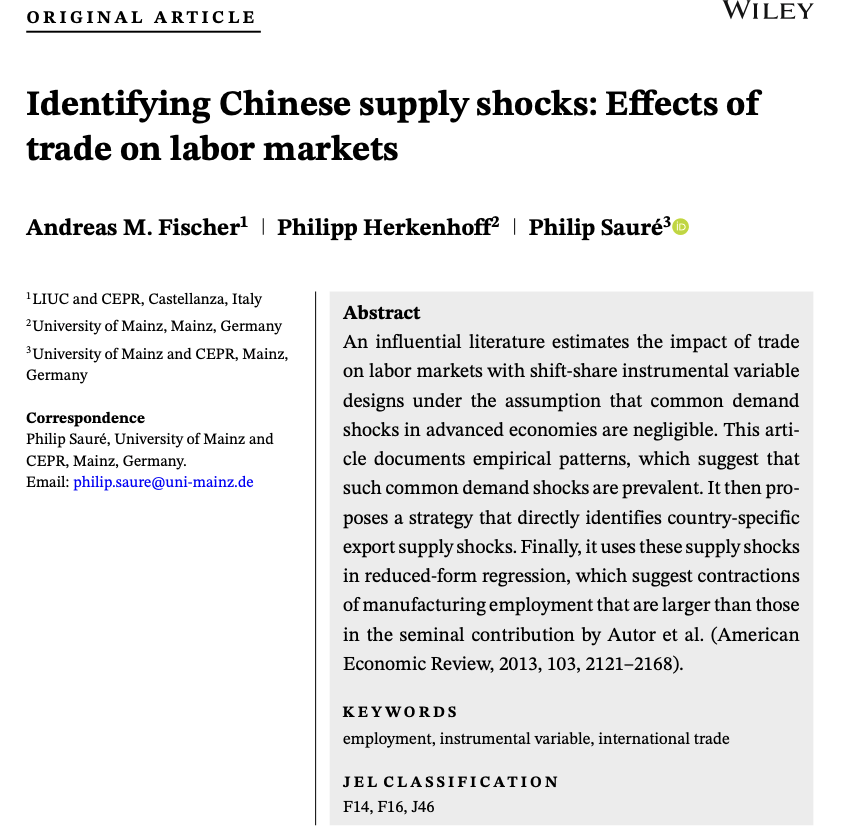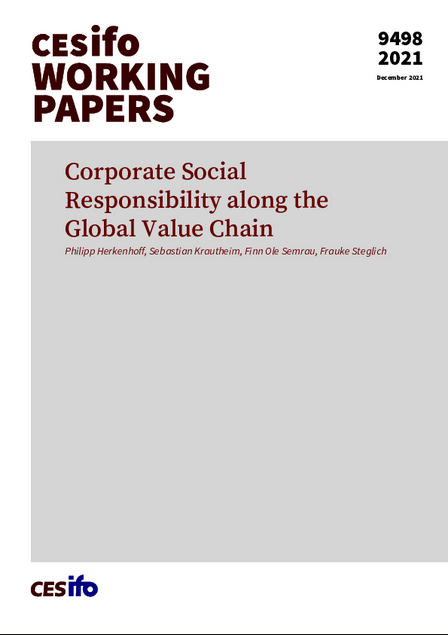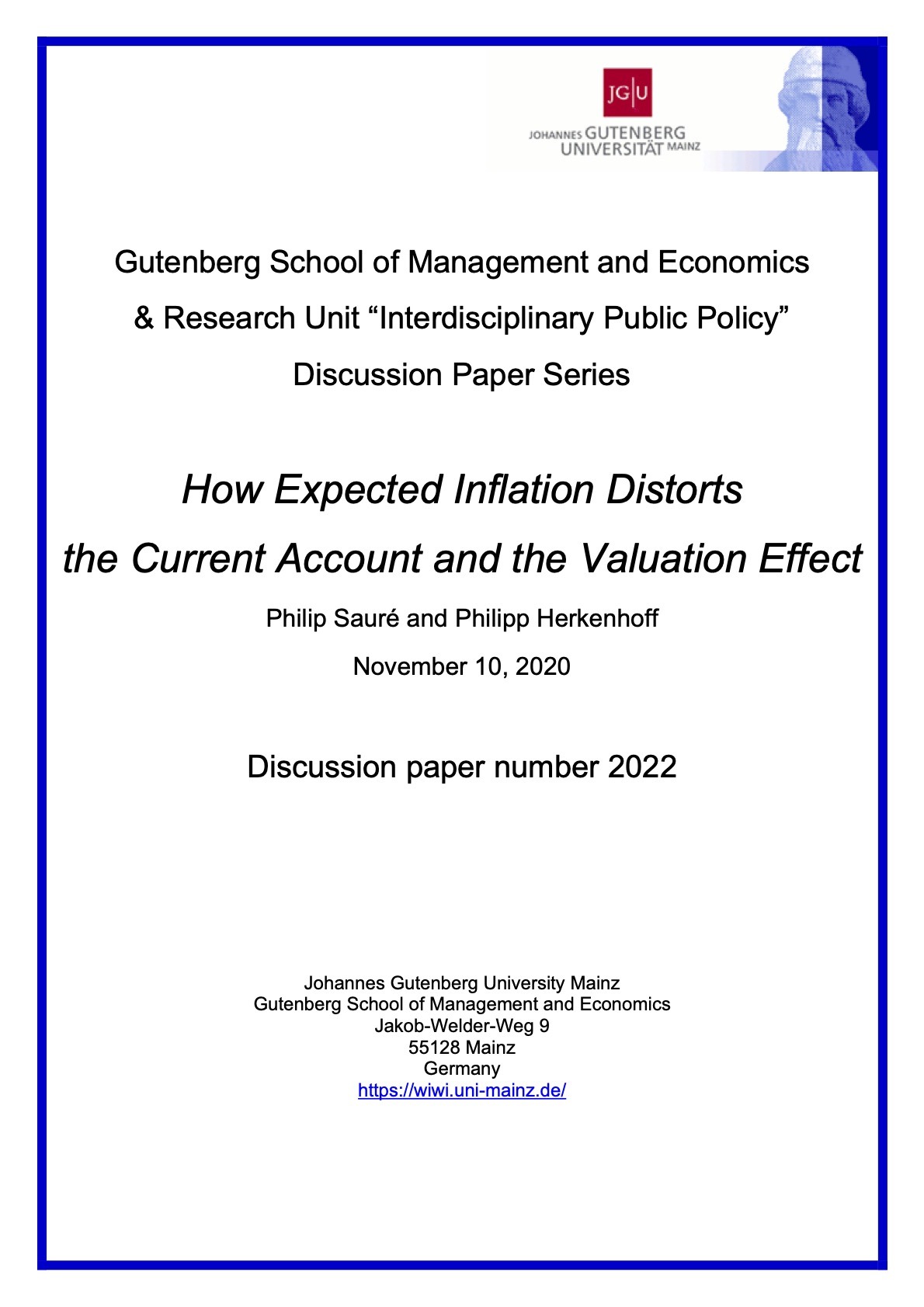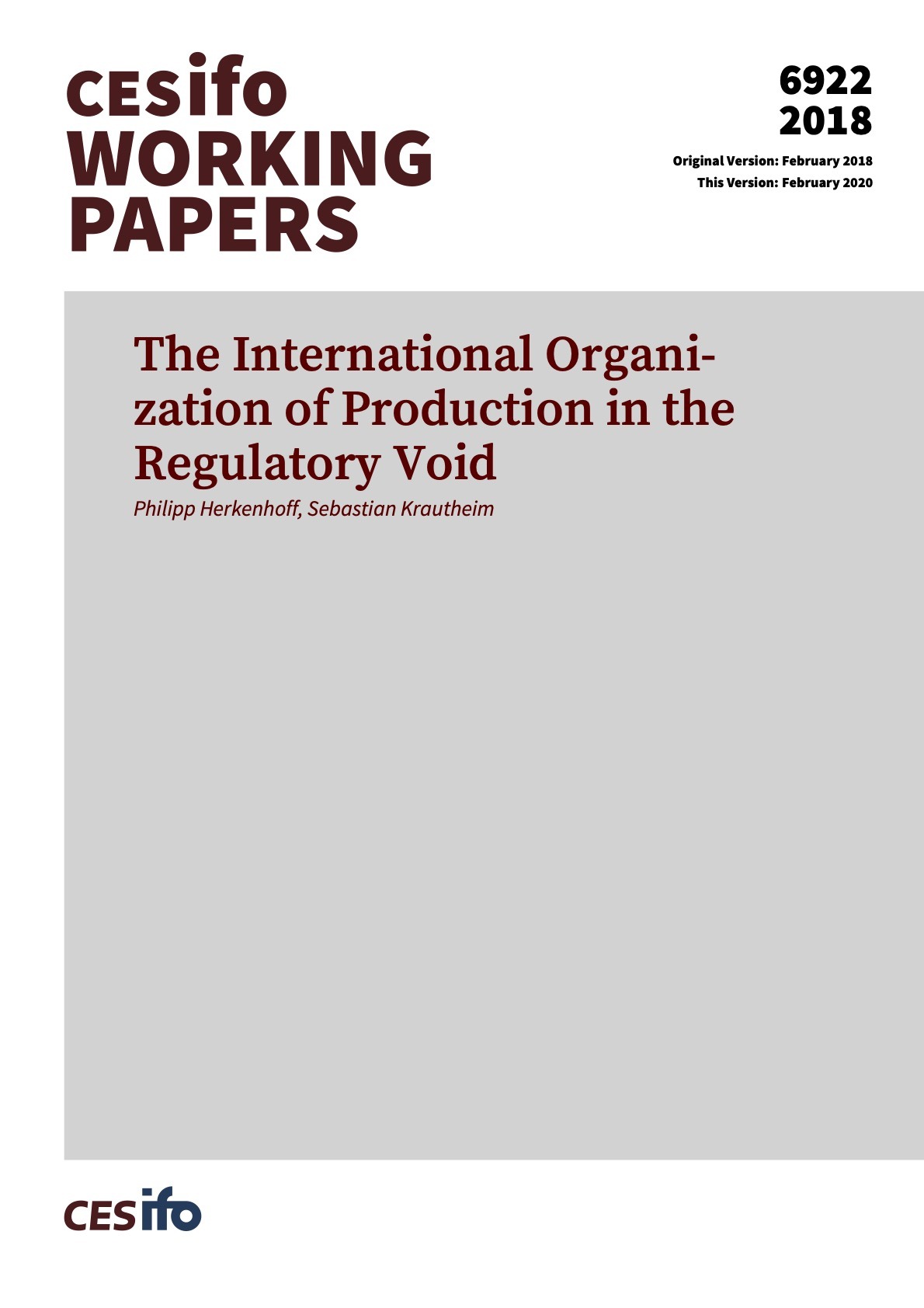︎

Philipp Herkenhoff
Medialine Group
Philipp Herkenhoff is a data analyst for Medialine Group. Previously, he was a postdoctoral researcher at the Chair of International Finance at Johannes Gutenberg University Mainz. His research interests are in international trade, international finance, and global value chains. He holds a PhD from LMU Munich and a MSc in Economics from Goethe University Frankfurt.
MORE ABOUT PHILIPP HERKENHOFF >Mar 15, 2024
Andreas M. Fischer, Philipp Herkenhoff, Philipp Sauré
Identifying Chinese supply shocks: Effects on trade labor markets
An influential literature estimates the impact of trade on labor markets with shift-share instrumental variable designs under the assumption that common demand shocks in advanced economies are negligible. This article documents empirical patterns, which suggest that such common demand shocks are pre...

Jan 12, 2022
Philipp Herkenhoff, Sebastian Krautheim, Finn Ole Semrau, Frauke Steglich
Corporate Social Responsibility along the Global Value Chain
Firms are under increasing pressure to meet stakeholders’ demand for Corporate Social Responsibility (CSR) along their global value chains. We study the incentives for and investments in CSR at different stages of the production process. We analyze a model of sequential production with incomplete ...

Jan 1, 2020
Philip Sauré, Philipp Herkenhoff
How Expected Inflation Distorts the Current Account and the Valuation Effect
We show that the current account balance (CA) is systematically distorted by an inflation effect, which arises because income on foreignissued debt is recorded as nominal interest in the currency of denomination. Since nominal interest includes compensations for expected inflation, increases in the ...

Jan 1, 2018
Philipp Herkenhoff, Sebastian Krautheim
The International Organization of Production in the Regulatory Void
In recent decades, a large and increasing number of leading firms in a diverse set of industries have faced allegations of ‘unethical’ practices along their international value chains. In many cases this has triggered consumer boycotts and NGO campaigns, introducing a new link between upstream (...

